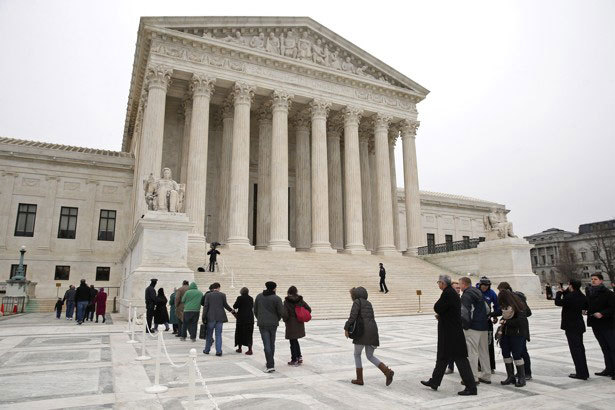A Narrow Escape for Public-Sector Unions

The justices split 4-4 in Friedrichs v. CTA, leaving a pro-union ruling in the lower courts intact.
By Matt Ford
The U.S. Supreme Court split 4-4 in Friedrichs v. CTA on Tuesday, thwarting a legal challenge that labor activists feared would deal a crippling blow to public-sector unions throughout the country.
“The judgment is affirmed by an equally divided Court,” the justices wrote in a brief, unsigned ruling.
The case was closely watched not only because of the implications for organized labor, but also how the court would rule following Justice Antonin Scalia’s death on February 13. Scalia was seen as likely to have ruled against the unions, and his death deprived the court’s conservatives of a tie-breaking fifth vote.
Tuesday’s deadlock means that the Ninth Circuit’s ruling in favor of the teachers’ union will stand. But it also signaled that Justice Anthony Kennedy, who almost certainly joined Chief Justice John Roberts and Justices Samuel Alito and Clarence Thomas on one side of the split, would be willing to overturn Abood v. Detroit Board of Education, the decision that became the basis for public-employee contracts. (The Court did not disclose how each justice voted in today’s decision.) That tosses the precedent’s ultimate fate to the next justice who serves on the Court.
Rebecca Friedrichs and nine other California teachers who brought the suit argued the state’s agency-fee system violated the First Amendment by forcing them to subsidize political activities they don’t support. Under California labor law, public employees—teachers, police officers, firefighters, and so forth—vote to designate a union as their exclusive representative for collective-bargaining purposes. These employees can’t be forced to join a union, but many of them do. Those who do join pay dues to support the union’s activities, which range from collective bargaining itself to broader political advocacy.
For the full article, click on the link below.
[Source]: TheAtlantic.com


